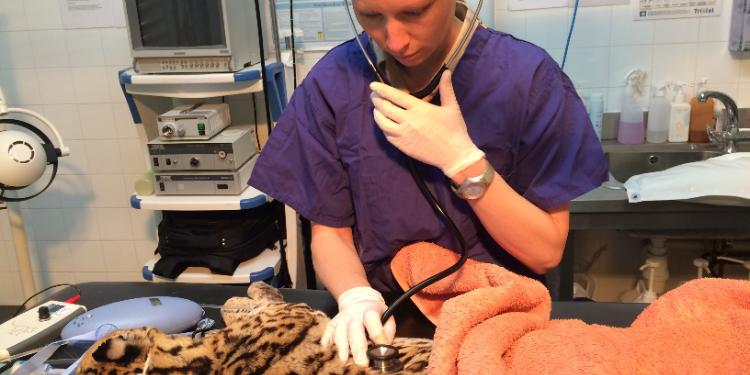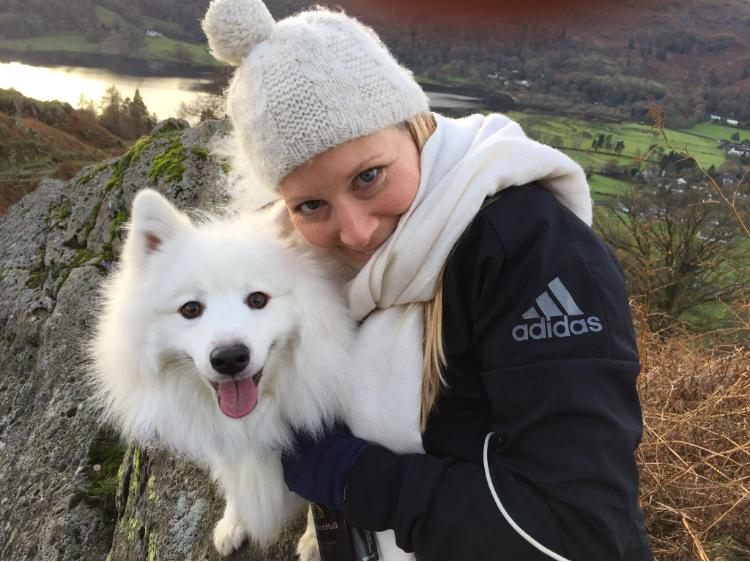Animal matters in post-pandemic Britain
British Veterinary Association
The coming years are likely to be tough on our animals and the people who care for them – so how can we safeguard welfare in the face of brutal challenges? PoliticsHome speaks to Dr Justine Shotton, President of the British Veterinary Association.
The theme of this year’s World Vet Day – “resilience” – is one that vets are all too familiar with after two years of working through the pandemic. Like so many people, they had to adapt to accommodate Covid-related restrictions and minimise the risk of the virus spreading in their clinics.
But as the rest of the country tentatively emerges from the depths of the crisis, vets are under more strain than ever, thanks to a unique combination of pressures facing their profession. Perhaps the most glaring challenge is that 4.7m households have acquired a pet since the start of the pandemic– and vets must now deal with the consequences.
 "It's having a huge impact on small animal veterinary practices,” explains Dr Justine Shotton, President of the British Veterinary Association. “Many are first-time pet owners who require more support – and that's compounded by the fact that we've been in lockdown, so there's been less opportunities for socialisation and fewer training classes available.
"It's having a huge impact on small animal veterinary practices,” explains Dr Justine Shotton, President of the British Veterinary Association. “Many are first-time pet owners who require more support – and that's compounded by the fact that we've been in lockdown, so there's been less opportunities for socialisation and fewer training classes available.
"Down the line, that can cause behavioural issues. There are also non-emergency problems in pets that had to be put off being seen during the restrictions, so we have a backlog of patients to be seen. Although most practices are now going back to more normal ways of working, throughout the pandemic many vets have had to consult on the phone or in car parks, rather than face-to-face in the consulting room."
 Unfortunately, as demand for veterinary care surges, it is not being met by a rise in numbers of vets themselves. Much like the wider workforce, the sector is suffering from a staffing shortage – something Dr Shotton says is partly due to the effects of leaving the European Union.
Unfortunately, as demand for veterinary care surges, it is not being met by a rise in numbers of vets themselves. Much like the wider workforce, the sector is suffering from a staffing shortage – something Dr Shotton says is partly due to the effects of leaving the European Union.
“It’s hard to say how much of it is due to Brexit, but we certainly had many European colleagues who decided not to continue working in the UK, and we also have dramatically fewer graduates from European countries joining us. But we do have recruitment and retention issues generally; many vets decide to leave after only a few years for jobs that are more flexible, provide them with a better work/life balance, are less stressful or provide better remuneration for their hard work.”
Brexit brought with it other challenges for the profession, with increases in certification requirements for pet travel and for movements of livestock and animal products, putting additional strain on vets working with domestic pets, farm animals and food security. Add into the mix the UK’s largest ever avian influenza outbreak, which began last November, and the cocktail of pressures on the veterinary profession looks almost intolerable.
Naturally, the BVA is doing everything in its power to lessen the impact all of this has on vets and the animals they look after. By helping pet owners to care for their animals’ health more effectively at home and supporting individual practices to avoid burnout among staff, the association hopes to discourage vets from leaving the profession as it works to bolster the numbers, and the diversity, of people joining it.
“We're supporting new vet schools and lobbying for better funding for veterinary school places so that we can encourage different types of people into the profession. We want a diverse, sustainable workforce that feels fulfilled and loves what they do in the long term.”
Shotton’s vision for the profession is for it to become sustainable in more ways than one. With a background in conservation and on secondment from the head vet role at Marwell Wildlife, a conservation-focussed charity zoo, she has chosen sustainability as the theme of her year-long tenure as BVA President, with a strong focus on environmental sustainability.
“It’s something that I’ve always cared about, but I think that with the current speed of loss of biodiversity – and I’ve been so lucky to work in some amazing places and see some amazing animals – sometimes it really does feel like you're fighting a losing battle,” she says.
She outlines some of the ways in which the veterinary profession can become more sustainable, ranging from the everyday quick and easy wins – such as recycling more in practice and switching to more climate-friendly energy suppliers – to the less obvious actions vets can take.
“Things like anaesthetic gases have a huge impact in terms of carbon emissions, so changing your anaesthetic protocols can really help to significantly reduce your carbon footprint,” explains Shotton.
“And we recently launched our policy on parasiticides in dogs and cats, after research suggested some of the pharmaceutical agents in flea and worming treatments are found in our waterways and could be damaging invertebrate populations. So we’re trying to support vets to use these products as part of a more risk-based approach, on a pet-by-pet basis, in order to preserve the invertebrate populations that we'll all rely on in the future.”
However, Shotton says when it comes to animal welfare, more help is needed from central government.
“We've been really relieved and encouraged to see the Sentience Bill getting through Parliament, and we’re keen to keep up the momentum on the Kept Animals Bill,” she says.
It will help to provide more robust legislation around keeping primates as pets as well as closing loopholes of importing dogs with cropped ears – and there'll be some tweaks to, for example, the number of animals that can be imported and exported, and the age at which pregnant dogs can come in. These are all really important issues to tackle as we deal with the boom in dog ownership and all the challenges that brings.”
There are other issues on the horizon that the profession is deeply concerned about, such as unregulated canine fertility clinics. She explains that the pandemic isn’t the only reason we’re seeing problems; it’s also the impact of social media, which makes things like ear-cropping fashionable. Fashion is also to blame for the huge prices commanded by certain breeds of puppies, encouraging criminals to turn to puppy farming or illegal fertility manipulation to produce unhealthy dogs which are being sold on to well-meaning but poorly informed owners.
And it could be behind the popularity of exotic pets, which has doubled in the UK since 2000, according to a survey by Born Free. BVA is currently drafting its policy position on these “non-traditional companion animals”, to offer education on how difficult it can be to meet exotic pets’ welfare needs. And just like puppies, some reptiles are bred unhealthily to look a certain way, Shotton warns.
“We’re doing lots of work to educate the public on these issues, but the right legislation is needed to support that,” she says.
